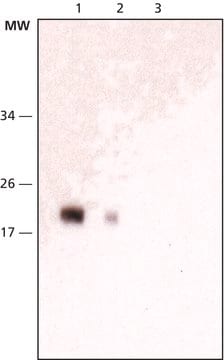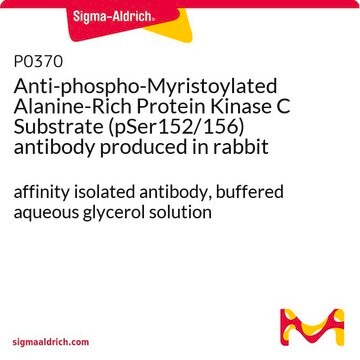O0383
N-Oleoylethanolamine
~98% (TLC)
Synonyme(s) :
N-(Hydroxyethyl)oleamide, N-(cis-9-Octadecenoyl)ethanolamine, OEA, oleoylethanolamide
About This Item
Produits recommandés
Pureté
~98% (TLC)
Niveau de qualité
Forme
powder
Solubilité
chloroform: 20 mg/mL, clear, colorless
Température de stockage
−20°C
Chaîne SMILES
O=C(CCCCCCC/C=C\CCCCCCCC)NCCO
InChI
1S/C20H39NO2/c1-2-3-4-5-6-7-8-9-10-11-12-13-14-15-16-17-20(23)21-18-19-22/h9-10,22H,2-8,11-19H2,1H3,(H,21,23)/b10-9-
Clé InChI
BOWVQLFMWHZBEF-KTKRTIGZSA-N
Informations sur le gène
human ... CNR1(1268) , CNR2(1269) , PPARA(5465) , TRPV1(7442)
mouse ... Cnr2(12802)
rat ... Cnr1(25248)
Description générale
Application
Actions biochimiques/physiologiques
Code de la classe de stockage
11 - Combustible Solids
Classe de danger pour l'eau (WGK)
WGK 2
Équipement de protection individuelle
dust mask type N95 (US), Eyeshields, Gloves
Certificats d'analyse (COA)
Recherchez un Certificats d'analyse (COA) en saisissant le numéro de lot du produit. Les numéros de lot figurent sur l'étiquette du produit après les mots "Lot" ou "Batch".
Déjà en possession de ce produit ?
Retrouvez la documentation relative aux produits que vous avez récemment achetés dans la Bibliothèque de documents.
Les clients ont également consulté
Notre équipe de scientifiques dispose d'une expérience dans tous les secteurs de la recherche, notamment en sciences de la vie, science des matériaux, synthèse chimique, chromatographie, analyse et dans de nombreux autres domaines..
Contacter notre Service technique








